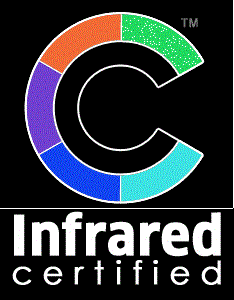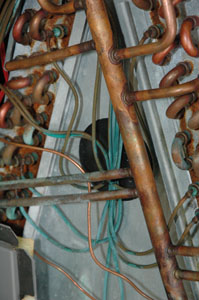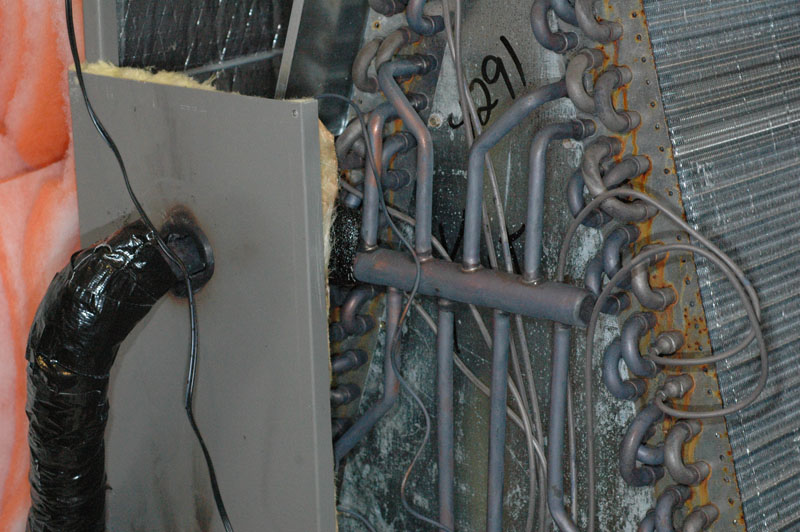
Jem n' I Properties LLC
www.jeminspection.com
P O Box 7151
Sarasota, Fl. 34278
941-685-1790
Chinese Drywall, Cause, Cure and Economics
CHINESE DRYWALL
Unfortunately Chinese drywall is an issue that needs to be addressed whether you are considering the purchase of a new home or have purchased a home that was built after 2001 or your home has had major renovations since 2001. The majority of new homes affected by Chinese drywall in Florida were built between 2004 and 2008. This was due to high demand for drywall during the housing boom and, in part, by the demand created after Hurricanes Rita and Katrina.
What is it?
Chinese drywall was manufactured from the waste product of coal-fired power plants in China. It is believed that this waste product contains iron sulfide (FeS2 pyrite), hydrogen sulfide (H2S), carbonyl sulfide, sulfur dioxide (SO2), and carbon disulfide (CS2). The largest manufacturer of this drywall was Knauf Tianjin. The rotten egg smell in contaminated drywall is due to the sulfur gases emitted by the drywall. This process is believed to be enhanced by moisture in high humidity climates. These same gases also attack copper, brass and silver. Your home electric system, air conditioning and anything containing electronic components (TV, refrigerators, etc). These all run on copper wiring and tubing and can be damaged by the presence of tainted drywall which will drastically reduce the life expectancy of these components.
On the left is normal copper tubing in the air handler. On the right the copper tubing is corroded due to Chinese drywall. These images are typical to what is found during a home inspection on newer houses with drywall contamination.


What can be done?
Not every house is affected by Chinese drywall. The Florida DOH has established specific protocols and criteria in testing for tainted drywall. The initial criteria is NON INVASIVE. I do not cut out sections of drywall. Instead, your home is inspected for the tell tale signs of tainted drywall. Basically, I determine if your home meets the first threshold for a possible case. Because it is possible that corrosion of metal in homes can occur for other reasons, it is important to obtain additional corroborating evidence of problem drywall. If your home meets the criteria, then we advance to the next threshold which will be minimally invasive and require laboratory analysis of suspect drywall.
The economics of tainted drywall
A house that is known to have Chinese drywall is basically worthless as regards resale value, from The Ledger in Winter Haven, FL.
http://www.theledger.com/article/20091208/NEWS/912085003?Title=Houses-Ruined-by-Chinese-Drywall
As mentioned in the above article, even local governments are acknowledging the negative economic impact of tainted drywall. The Sarasota County Property Appraiser, Bill Furst, is working to provide relief to those homes with tainted drywall. There is an application which can be download here.
http://www.sc-pa.com/New/Drywall/2009%20IMPORTED%20DRYWALL%20SURVEY.pdf
Simply follow the directions on the form.
The Federal government is aware of this and there might be some help from the IRS. Please read this letter.
http://www.doh.state.fl.us/Environment/community/indoor-air/taxrelief.pdf
Always consult with your attorney and/or CPA for tax advice.
How to fix it?
Despite what you may hope for or have been told, there is no “quick fix” for this problem, from the Florida Dept of Health, "DOH is not currently aware of any proven and effective treatment method other than removal and replacement of the suspected or known source material. Claims of treatment involving ozone, coatings, and air cleaners should be scrutinized for evidence of proven effectiveness. The Office of the Attorney General of Florida recently posted a consumer alert on this subject. DOH recommends against the use of ozone generators in occupied spaces, since ozone is a highly reactive and irritating molecule and is considered hazardous to people and pets."
For Home Sellers
The Internet and all the publicity surrounding Chinese drywall has made the buyer more aware and highly attuned to the problem of tainted drywall.
Two articles from the Wall Street Journal about Chinese Drywall are below:
http://online.wsj.com/article/SB123171862994672097.html
http://online.wsj.com/article/SB123993444645927999.html
If your home is in a suspected area, was built or renovated between 2001 and 2008, you may want to have a pre-listing home inspection done to help improve the value and marketability of your home to prospective buyers.
What you cannot see will cost you !



